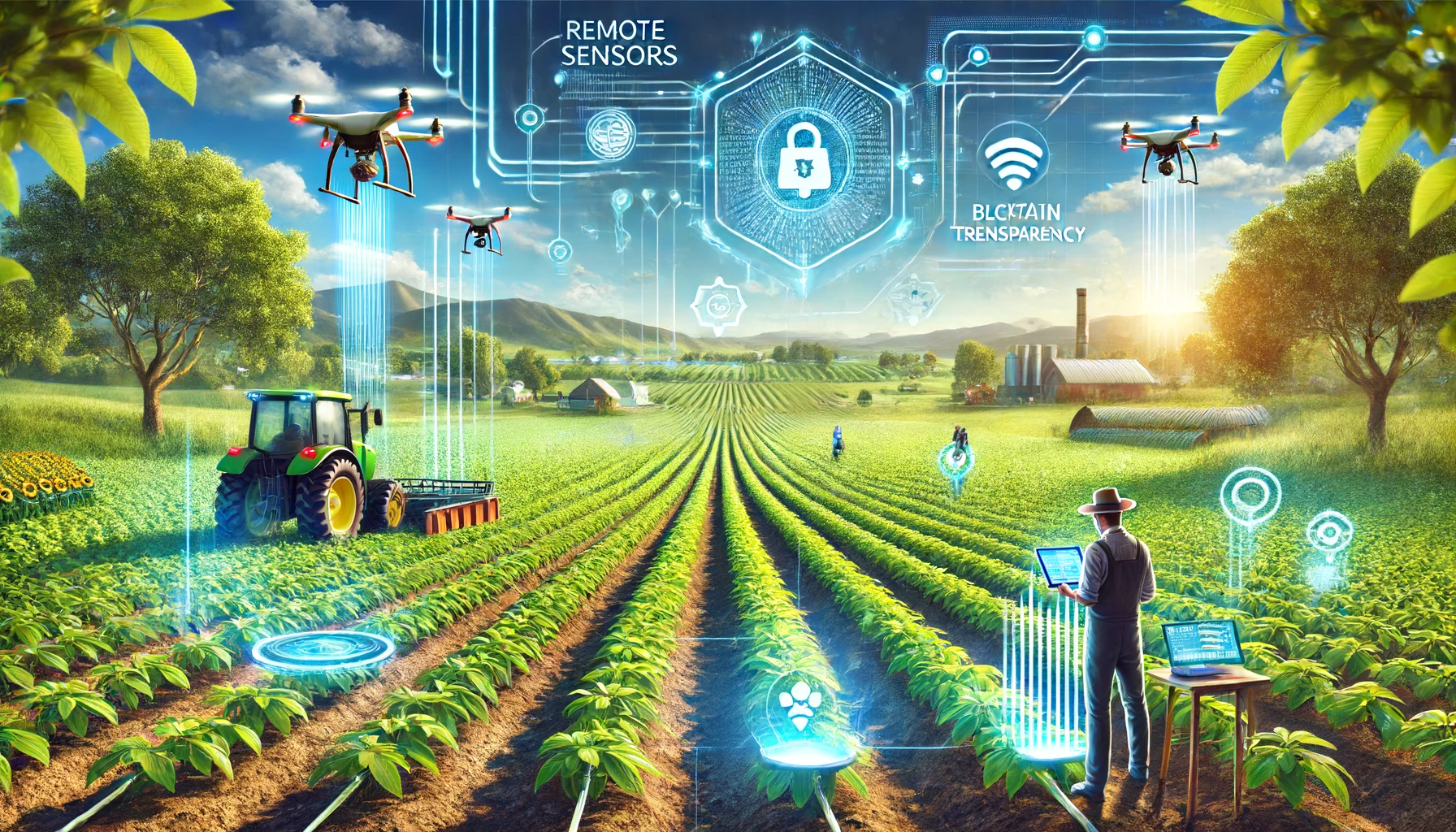Transforming Agriculture: How Digital Technologies are Shaping Food Security and Sustainable Goals

A study by Anca Antoaneta Varzaru from the Department of Economics, Accounting and International Business, University of Craiova, Romania explores how digital technologies are helping to improve food security and achieve Sustainable Development Goals (SDGs) in Europe. This research looks at data from the Digital Economy and Society Index (DESI) and SDG reports from 2017 to 2022 to understand how digital advancements impact goals related to poverty, hunger, health, and inequality.
Transforming Agriculture with Technology
Digital technologies include things like artificial intelligence (AI), remote sensors, smart farming, social media, and blockchain. These tools can help farmers manage resources better, make precise interventions, and practice sustainable farming. For example, AI can analyze large amounts of data to help farmers make better decisions about planting and irrigation. Remote sensors can monitor crops and soil conditions in real-time, allowing farmers to use resources more efficiently. Smart farming combines these technologies to improve overall farm management.
Impact on Sustainable Development Goals
The study focuses on four SDGs related to food: No Poverty (SDG 1), Zero Hunger (SDG 2), Good Health and Well-being (SDG 3), and Reduced Inequality (SDG 10). The research found that digital technologies have a significant positive impact on reducing poverty, improving health, and reducing inequality. However, the impact of eliminating hunger is less clear. The study uses two main methods to analyze the data: structural equation modeling (SEM) and cluster analysis. SEM helps to understand the complex relationships between different variables, such as how digital technologies affect SDGs. Cluster analysis groups countries into different categories based on their levels of digital advancement and progress towards SDGs.
Uneven Benefits Across Europe
The SEM results show that digital transformation, as measured by DESI, has a significant positive effect on SDGs related to poverty, health, and inequality. This means that countries with higher levels of digital advancement tend to perform better in reducing poverty, improving health, and reducing inequality. However, the impact on hunger is not as significant. The cluster analysis groups European countries into three categories based on their digital and SDG performance: High Digital and High SDG Performance (Cluster A), Moderate Digital and SDG Performance (Cluster B), and Low Digital and Low SDG Performance (Cluster C). Cluster A includes countries like France, Germany, and Spain. These countries have high levels of connectivity, digital public services, human capital, and digital technology integration. They perform well in reducing poverty and improving health but have mixed results in reducing inequality and eliminating hunger. Cluster B includes countries like Belgium, Austria, and Finland. These countries show medium levels of digital advancement and SDG performance. They generally perform around the EU average in all SDGs related to food. Cluster C includes countries like Romania and Bulgaria. These countries face significant challenges in digital advancement and show lower performance in SDGs, especially in promoting health and reducing inequality.
Bridging the Digital Divide
One of the biggest challenges is ensuring equitable access to digital technologies. In many regions, especially in developing countries, the necessary infrastructure for digital transformation is lacking. This can widen the gap between countries and within regions, making it harder for everyone to benefit from technological advancements. The study highlights the crucial role of digital technologies in improving food security and achieving sustainable development goals. While digital advancements significantly help reduce poverty, improve health, and reduce inequality, their impact on eliminating hunger needs more attention. Policymakers need to focus on bridging digital divides to ensure that all regions and communities can benefit from these technologies. Digital transformation is essential for building resilient and sustainable food systems. By leveraging digital tools, we can optimize farming practices, reduce waste, and promote sustainability. This research underscores the importance of continued investment in digital technologies to create a more equitable and sustainable future for all.
- FIRST PUBLISHED IN:
- Devdiscourse
ALSO READ
Honduras Escalates War on Gangs with New Prison and Terrorist Designations
US designates neo-Nazi Nordic group as global terrorists
Ryan Murphy's Burning Desire: Quest for Olympic Glory in Paris
EU's Ecodesign Regulation: A New Challenge for Indian Exporters
Empowering Public Health with Dashboards: Key Design and Implementation Strategies










